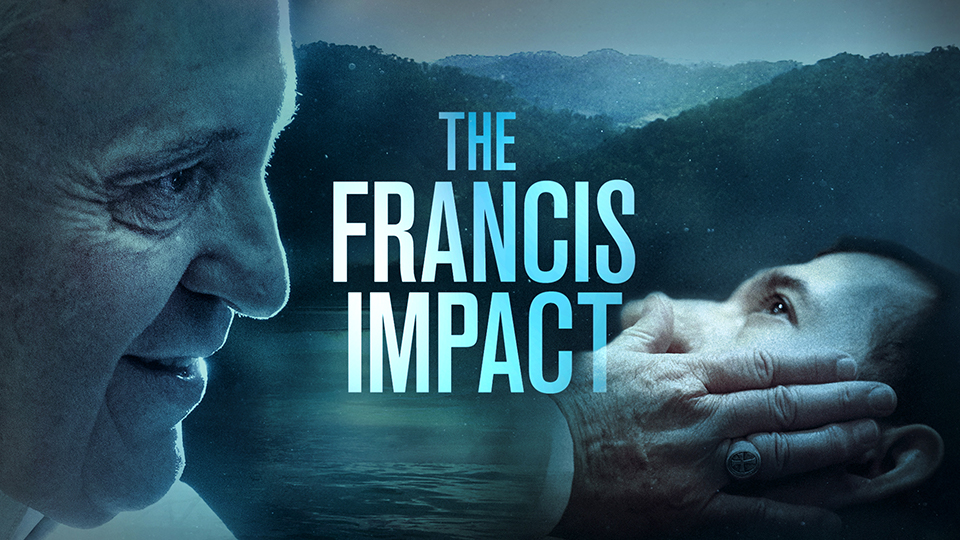#TFImoments: Fr. Frank Morrisey, OMI, explains Pope Francis’ approach to family struggles
Sebastian Gomes
Thursday, September 27, 2018
Pope Francis’ words and actions have had a profound impact on countless people of various backgrounds, interests, and beliefs. In the interviews for my upcoming documentary, The Francis Impact, I’ve heard some beautiful and concrete testimonies of this. So I created #TFIMOMENTS, a web series to share some of these profound and personal moments of connection with the pope.When the highly anticipated apostolic exhortation Amoris Laetitia was issued by Pope Francis in April 2016, many commented that “a door had been opened.” That door referred to the possibility, in some extraordinary cases, of divorced and remarried Catholics receiving Communion—a door which had previously been closed by Pope John Paul II. Many articles and blogs were subsequently written about whether or not Francis had the authority to “open” that door, and the debate became highly technical. Often lacking in these commentaries, however, was a clear understanding of Francis’ pastoral approach that led him and the bishops at the 2015 synod on the family to make such a move. Pope Francis did not “open the door” to Communion for divorced and remarried Catholics because he desired that outcome per se. He opened that door because it’s the natural consequence of an incarnational pastoral accompaniment of persons living in complex situations. This reorientation of the Church’s pastoral accompaniment is grounded on one of the central themes of Francis’ Petrine ministry: as he often says, “reality is greater than ideas.” This principle “calls for rejecting the various means of masking reality: angelic forms of purity, dictatorships of relativism, empty rhetoric, objectives more ideal than real, brands of ahistorical fundamentalism, ethical systems bereft of kindness, intellectual discourse bereft of wisdom,” Francis writes in Evangelii Gaudium 231. This principle can be applied to other reforms Francis has instituted, like the reform of the annulment process in 2015. The Francis Impact (to be released in the coming months) tells the story of a couple who had difficulty moving through the annulment process prior to Francis’ reforms. The process took years. Distinguished canon lawyer Fr. Frank Morrisey, OMI, comments in the film on his role on the papal commission tasked by Francis to reform the procedures. As he says in this #TFImoment, Francis opened another door: “The door that Francis is opening is recognizing that the legal approach is not the only approach.” A legal approach to a complex marital situation starts with a law or a principle and applies it to the persons. “Pope Francis,” says Fr. Frank, “is starting with the persons and moving up.” The reforms, which Fr. Frank helped draft, streamlined the annulment process and assuaged the consciences of countless Catholics seeking a judgement. Fr. Frank’s #TFImoment captures one of the most important principles for Pope Francis: reality is greater than ideas. It’s the hermeneutical key that has opened many of the doors we’ve walked through over the passed five and a half years. For more information about The Francis Impact visit the official webpage.
Next #TFImoment: Fr. Daniel Horan, OFM, Assistant Professor of Systematic Theology and Spirituality at Catholic Theological Union in Chicago

Related Articles:
Category: Featured, General Posts, Pope Francis, The Francis Impact, Videos
Tag: #TFImoments, annulment, canon lawyer, Fr. Frank Morrisey, marriage, OMI, Pope Francis, reforms, TFI, The Francis Impact
Pray with the Pope Reflection – June 2025
Friday, June 13, 2025
 Fr. Edmund Lo, SJ
Fr. Edmund Lo, SJ
In this month of June, the Holy Father invites us to pray that the world might grow in compassion, that each one of us might find consolation in a personal relationship with Jesus, and from his Heart, learn to have compassion on the world.
Chaplaincy: “Divine Coffee” for Students
Tuesday, June 10, 2025
 Gianpaolo Capozzi
Gianpaolo Capozzi
Gianpaolo gives us a behind the scenes look at his upcoming Behold segment on the York University Catholic Chaplaincy.
Pope Leo XIV’s homily for Pentecost Sunday 2025
Sunday, June 8, 2025
 Pope Leo XIV
Pope Leo XIV
On Sunday, June 8, 2025, Pope Leo XIV celebrated Mass for the Jubilee of Movements, Associations, and New Communities and spoke about how the Holy Spirit helps the apostles overcome "their fear, shatters their inner chains, heals their wounds, anoints them with strength and grants them the courage to go out to all and to proclaim God’s mighty works."
Homily of Pope Leo XIV at the Mass for the Jubilee of Families, Children, Grandparents, and the Elderly
Sunday, June 1, 2025
 Pope Leo XIV
Pope Leo XIV
Pope Leo XIV celebrated Mass for the Jubilee of Families, Children, Grandparents, and the Elderly and referred to Pope Francis and mentioned spouses who have been beatified and canonized, like the parents of St. Therese of the Child Jesus.
Looking back on Rerum Novarum
Monday, May 26, 2025
 Matthew Neugebauer
Matthew Neugebauer
Pope Leo XIV chose his name primarily to highlight his most recent namesake Leo XIII, whose "historic encyclical Rerum Novarum addressed the social question" to the challenges of his time. What concerns does the encyclical address? How does it speak to its time? And what has been its legacy 134 years later?
SUPPORT LABEL
$50
$100
$150
$250
OTHER AMOUNT
DONATE













